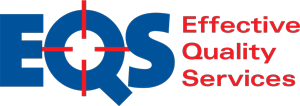Selecting a qualified training provider for ISO 9001 internal auditor training ensures that your auditors gain relevant insights and practical skills. Consider the following criteria when evaluating potential providers:
- Experience and Accreditation
- Look for providers accredited by recognized certification bodies or training organizations.
- Verify that trainers have real world audit experience, preferably in manufacturing or your specific industry.
- Ask for references or case studies demonstrating successful client outcomes.
- Curriculum Depth and Practical Focus
- Review the course agenda to ensure it covers all essential audit topics, from ISO 9001 clause interpretation to root cause analysis techniques.
- Confirm that the training includes hands on exercises, group discussions, and audit simulations.
- Check if the course materials provide useful templates, checklists, and reporting examples.
- Customization and Industry Expertise
- Determine whether the provider can tailor training to your organization’s processes, size, and risk profile.
- If you operate in a specialized manufacturing sector, verify the trainer’s familiarity with relevant regulations or standards.
- Ask if they can use examples drawn from your product lines, production methods, or supply chain.
- Ongoing Support and Follow Up
- Does the provider offer post training support, such as coaching sessions or access to updated audit resources?
- Check whether they provide mentorship or consultation services when your auditors tackle real audit challenges.
- See if they host refresher seminars or advanced auditor workshops.
- Cost and Return on Investment
- Compare pricing structures for public courses versus onsite or virtual training.
- Consider the total cost, including travel expenses, materials, and any required certifications or exam fees.
- Balance upfront cost against the long term benefits of reduced nonconformities, improved process efficiency, and higher customer satisfaction.

